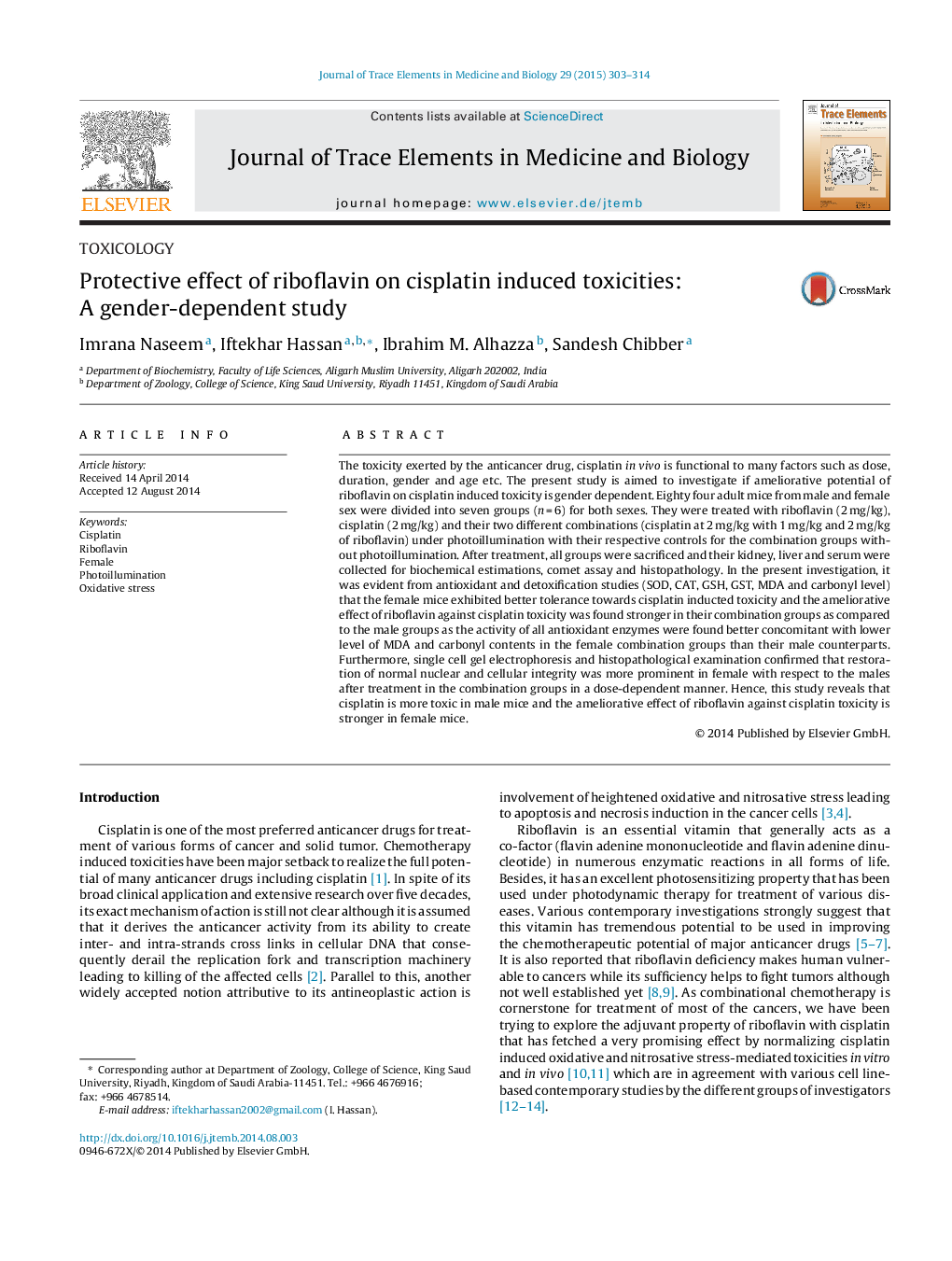| Article ID | Journal | Published Year | Pages | File Type |
|---|---|---|---|---|
| 1227377 | Journal of Trace Elements in Medicine and Biology | 2015 | 12 Pages |
The toxicity exerted by the anticancer drug, cisplatin in vivo is functional to many factors such as dose, duration, gender and age etc. The present study is aimed to investigate if ameliorative potential of riboflavin on cisplatin induced toxicity is gender dependent. Eighty four adult mice from male and female sex were divided into seven groups (n = 6) for both sexes. They were treated with riboflavin (2 mg/kg), cisplatin (2 mg/kg) and their two different combinations (cisplatin at 2 mg/kg with 1 mg/kg and 2 mg/kg of riboflavin) under photoillumination with their respective controls for the combination groups without photoillumination. After treatment, all groups were sacrificed and their kidney, liver and serum were collected for biochemical estimations, comet assay and histopathology. In the present investigation, it was evident from antioxidant and detoxification studies (SOD, CAT, GSH, GST, MDA and carbonyl level) that the female mice exhibited better tolerance towards cisplatin inducted toxicity and the ameliorative effect of riboflavin against cisplatin toxicity was found stronger in their combination groups as compared to the male groups as the activity of all antioxidant enzymes were found better concomitant with lower level of MDA and carbonyl contents in the female combination groups than their male counterparts. Furthermore, single cell gel electrophoresis and histopathological examination confirmed that restoration of normal nuclear and cellular integrity was more prominent in female with respect to the males after treatment in the combination groups in a dose-dependent manner. Hence, this study reveals that cisplatin is more toxic in male mice and the ameliorative effect of riboflavin against cisplatin toxicity is stronger in female mice.
